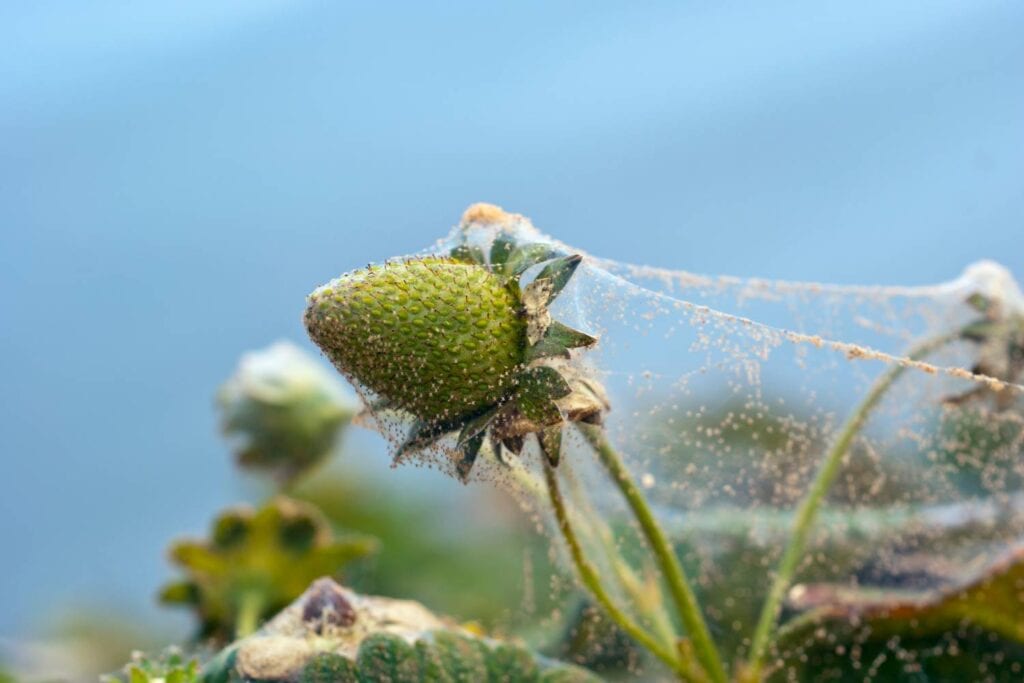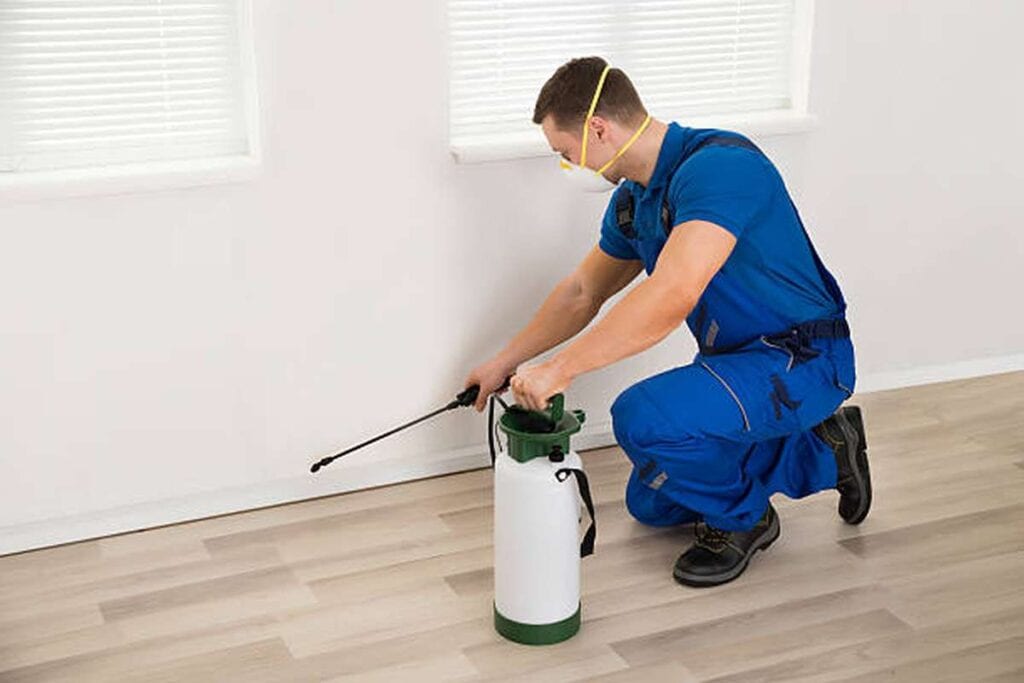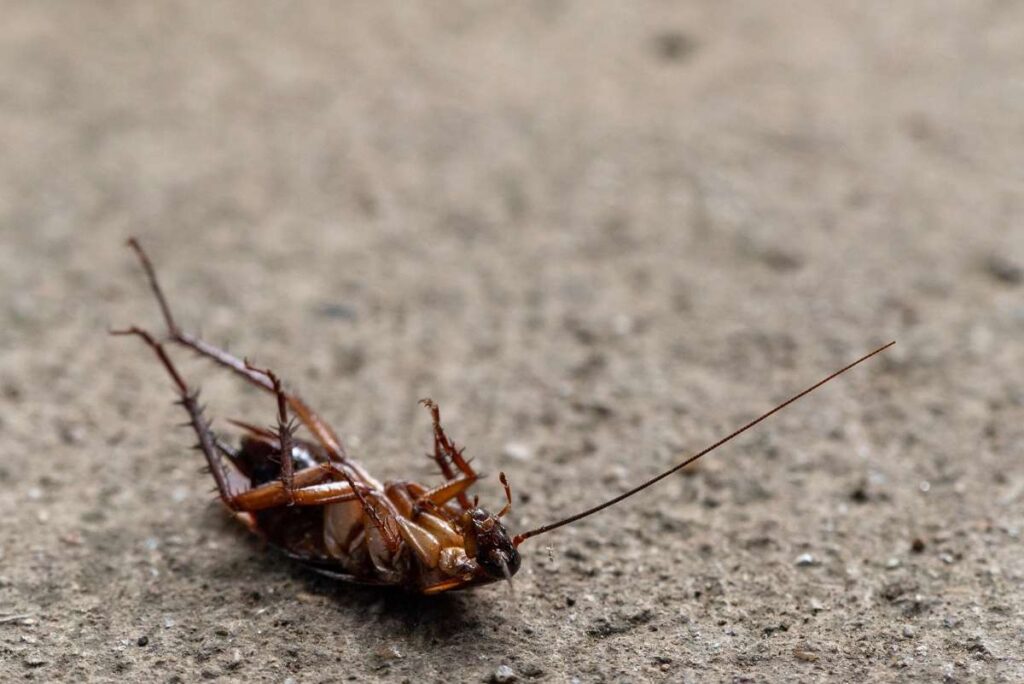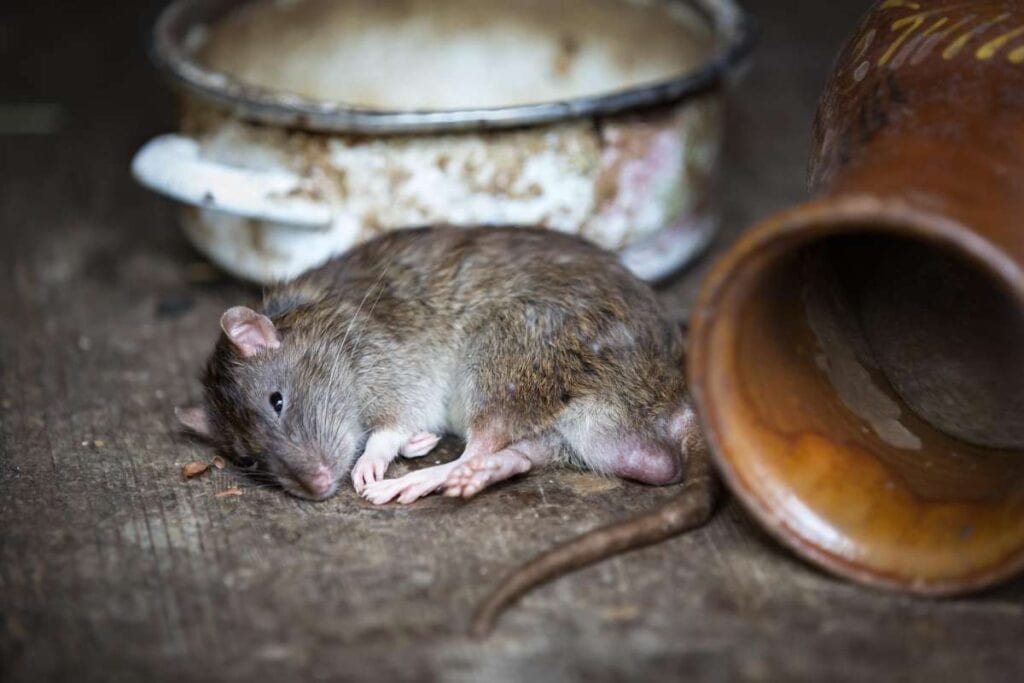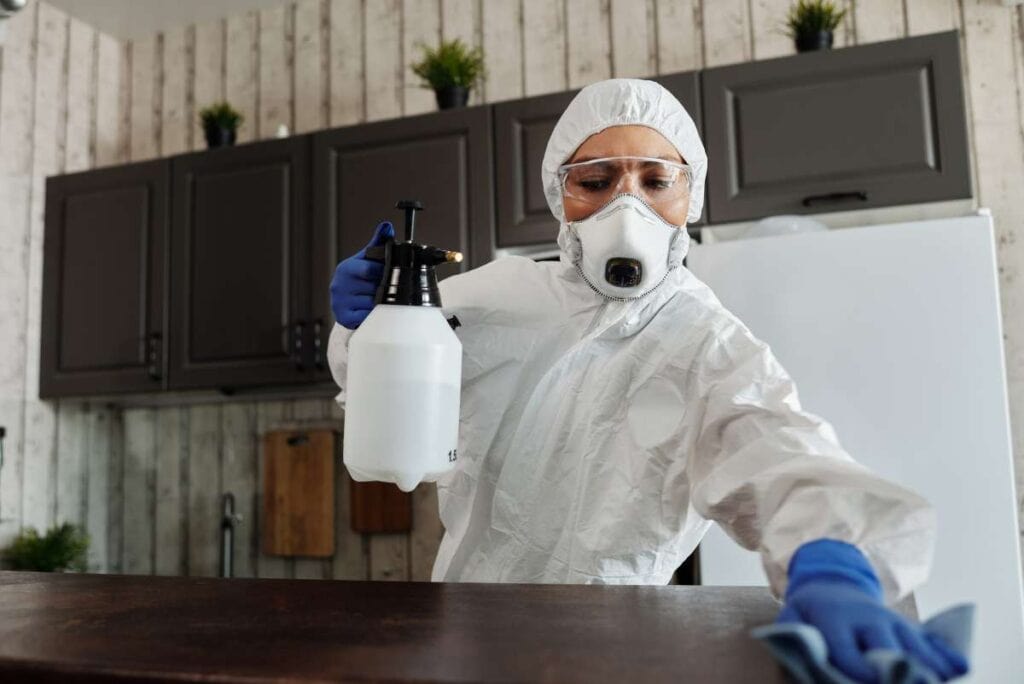When spiders invade our homes, they go from being good allies (they kill other pests) to unpleasant guests. The delicate balance of nature might be unsettled as they increase.
Understanding the complexities of spider population management and control is crucial. In addition to preserving a pleasant and secure environment, this knowledge also helps keep the varied species that call our homes and neighbourhoods in a precarious balance.
Exploring preventative measures and professional interventions, this article will explore various strategies and methods for spider control.
What Are Spiders?
Spiders, arthropods with eight legs, have fangs that, depending on the species, can inject venom that can be dangerous to humans. These spooky creatures may be romanticised for Halloween, but their bites may be extremely unpleasant and dangerous.
Spiders, in contrast to insects, do not possess antennae that can assist in the identification process, as explained by professionals in the field of spider control.
Spiders are classified as members of the arachnid class of arthropods, a group of invertebrate organisms that have legs that are joined together. Other members of this class include mites, ticks, and scorpions, all well-known pests.
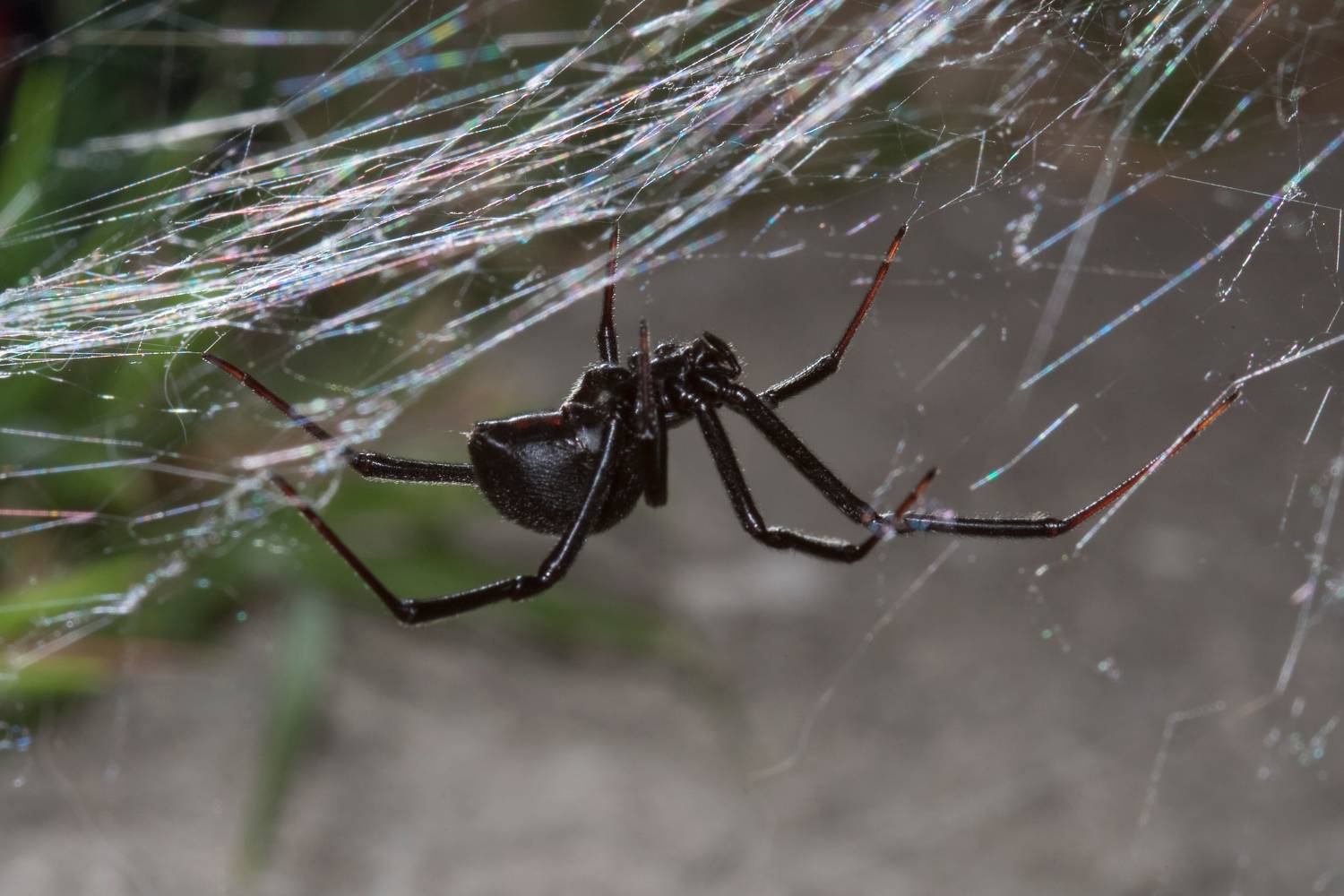
What Impact Do Spiders Have In And Around My House Or Place Of Business?
You, your loved ones, your pets, and even your clients are in danger from venomous spiders. The danger level is proportional to the spider species. Common spiders, such as black widows, brown recluses, wolf spiders, and long-legged sac spiders, provide substantial dangers. The ability to bite persists in even the non-venomous varieties.
This particular danger isn't the only one that spiders pose to your house or place of business. These pests can swiftly grow, build webs in inconvenient places, and frighten away loved ones and clients. Consider the dangerous black widow spider: it can lay as many as nine cocoons, each containing 200-800 eggs!
If you don't eliminate spiders immediately, even a little infestation might become a major problem. Insects and other vermin are indeed prey for spiders. If your business or residence is bug-free, you will only get a little use out of spiders.
Signs You Have A Spider Problem
Provide a list of warning signs of a spider infestation that will assist you in distinguishing between a single visitor and a whole family of spiders.
Webs
Web construction is one of the most distinctive behaviours associated with spiders. Places, ceiling beams, chandeliers, inaccessible places (like those behind pieces of furniture), and, if you're lucky, open containers and boxes can all be a good place to find spider webs. Cobwebs and spider webs look similar, but a few key distinctions might help you tell them apart.
When spiders spin their webs, they usually contain egg sacs or encase flying insects for sustenance. Still, when cobwebs are empty, they have accumulated dust or are constructed from twisted fibres collected over time. Cobwebs don't necessarily indicate an infestation, but spider webs do.
Egg Sacs
A single egg sac can hold hundreds of baby spiders; you can find them in active webs, containers, or crawl spaces. The young spiders will come out to make their nests and deposit their eggs when they hatch; if you don't get rid of a single egg sac, you can end up with a whole new generation of spiders in your house. Hundreds of invading spiders aren't something any homeowner wants.
It would be best to search for small white web balls in the nooks and crannies of your home or the vicinity of an active spider web. To quickly control the proliferation of spiders, you can use a pesticide that you can buy at the shop. However, it is important to remember to hire a professional exterminator to spray your entire home.
Spider Droppings
The presence of spider droppings indicates that you may have a spider problem; however, it may not be immediately apparent. The spiders in your home may have left these little spots in various locations. They can be mistaken for tiny black paint splatters without light.
You should be quite concerned if you see these droppings all over your house since they might discolour your baseboards or walls if you don't clean them. A spider infestation is highly probable if you notice the presence of small black "paint slatters" in the corners or attic of your home.
Excess Flying Insects
Spiders will establish a house wherever they can locate flying insects, as they are their favourite food source. Insects such as mosquitoes, flies, and moths make up most of a spider's diet, but it will also snag earwigs and roaches if it can, and some species even consume snails and slugs. Spiders may have unwittingly drawn them to your home in search of a food source if you frequently find plenty of these insects in or near your property.
Check the areas around your home that get the most light, such as the corners of windows or near light sources, to see if you have a spider problem. These locations see a lot of insects; thus, that's where spiders usually spin their webs.
Seeing Spiders
The presence of spiders, albeit obvious, should make you pay attention because it indicates that they reside in your home. Some homeowners might brush off seeing a single spider as an isolated incident. But the presence of only one spider can herald the beginning of a flourishing colony.
Spiders are prolific breeders; even a couple can turn your house into a veritable nesting site for their young. Therefore, being on the lookout for spiders is essential since they might signal the start of an infestation that requires quick action to keep the area spider-free.
Dark Muggy Spaces
Spiders consider several geographical considerations, including food availability, when deciding where to construct their nest and deposit their eggs. Spiders are most at home in damp, dark places where they can easily find food. They also favour constructing their homes in inaccessible areas to safeguard their eggs and food supplies.
The abundance of human possessions in dark, enclosed spaces, such as basements and attics, provides an excellent environment for spiders to establish a home. Consider the sections of your house lacking light, suffocating in humidity, and frequently neglected.
Natural Ways To Remove Spiders
There is no natural ecosystem that does not contain spiders as an important component. When it comes to protecting your food crops or garden from pests, they are indispensable.
Most spider species aren't dangerous to people, yet it doesn't stop us from wanting them about the house. Some spider species are poisonous, while others can swiftly reproduce to invade your home. Here is a strategy to naturally eliminate spiders without harming your eight-legged friends:
Vacuum
Before you begin any do-it-yourself spider removal techniques, you must vacuum your entire home, ensuring you get all the corners and crevices. The best places to find spiders and their egg sacs are in dark, secluded places like entryways, closets, corners, and under furniture.
After finishing, quickly empty the vacuum canister or throw away the bag to remove any webs or egg sacs that may have accumulated in your home. If you want to keep your home clean and safe from spiders so you can relax, it's important to dispose of them quickly so they don't come back.
Screens
Spiders are well-known for using broken windows and open doors as easy access points to get inside people's houses. The best way to protect yourself from their invasion is to install and carefully maintain screens on your windows and doors.
The substantial barriers these screens provide will prevent spiders' ongoing attempts to invade your living spaces by effectively closing off all possible entrances. Aside from protecting your home from pesky spiders, this preventative precaution will make your house more comfortable and safe for you and your family.
White Vinegar
Aside from its many other uses around the house, vinegar is also a great way to keep spiders at bay. Make a solution by filling a spray bottle with water and white vinegar in equal proportions. Because its acidic characteristics quickly neutralise and kill the invader upon touch, this simple mixture is always on hand whenever a spider is seen. With little effort and money spent, you may use vinegar as a pesticide to rid your home of spiders.
Baking Soda
To a similar extent as vinegar, baking soda is a multipurpose home ingredient with various uses. The spiders will avoid the regions where you sprinkle it. It is important to exercise caution when using excessive baking soda because it might harm dogs if they swallow it.
Avoid harming your pets and family while successfully discouraging spiders by using them sparingly and wisely. If you want to take a more environmentally responsible approach to pest control, consider using baking soda as a remedy instead of harmful medications. It's safer for pets and the environment.
Essential Oils Of Eucalyptus Or Peppermint
The powerful aroma of essential oils serves as a natural pest deterrent. Peppermint oil is the most effective repellent against spiders. Mix water in a spray bottle with 15 to 20 drops of peppermint oil to get the most benefits, and then spritz it multiple times.
Essential oils may have a relaxing effect on humans, but spiders won't feel any different. Peppermint and eucalyptus are two scents they despise and will go to great lengths to avoid.
Spray this concoction wherever you suspect spiders may enter your home through their legs since they are olfactory and gustatory insects. Combine around ten drops of oil with sixteen ounces of water in a spray bottle. After mixing, spray all about your home, paying special attention to nooks, entryways, and flooring.
A Cup And A Piece Of Paper
Consider releasing the spider back into its natural home as a humane option if you're not dealing with a full-blown infestation and are not afraid of spiders. Holding a glass or cup, delicately capture the spider beneath to keep it contained.
Next, carefully place a piece of cardboard or paper under the container while sealing it tightly. Once you're outside, let the spider return to its natural habitat and continue playing its part in the ecosystem. This caring approach helps maintain ecological harmony while encouraging understanding and cooperation with other arthropod species.
Chemical Treatments For Spider Removal
Chemical methods of spider management include using pesticides and insecticides in locations where spiders are present, aiming to eliminate or discourage their presence. Chemical treatments are necessary to manage spider populations effectively; however, applying these treatments ethically and carefully is critical to avoid harming humans and the environment.
Insecticides
Using chemical pesticides sparingly is an efficient way to get rid of spiders. Use products designed to kill spiders to protect your family's health, and always follow the manufacturer's instructions. Achieving the best possible results with the least amount of risk requires meticulously reading and following the instructions provided by the manufacturer.
Make sure to prioritise the selection of formulations with low toxicity to reduce the risk of harm to pets and the environment. In addition to chemical interventions, regularly keeping the area clean and clutter-free will discourage spiders from making their homes there. To ensure that chemical treatments are effective in the long run, it is important to conduct inspections regularly to spot any comeback or new infestations as soon as possible.
Spider Sprays
Sprays designed to repel spiders are an easy and quick fix. Apply them immediately to the window sills, baseboards, and nooks and crannies where spiders hide or enter. For long-term protection against spider infestations, choose formulations with residual characteristics. Selecting long-lasting products guarantees continuous protection, reducing the chances of reinfestation and encouraging a spider-free environment.

Ultrasonic Repellents
To keep spiders away from treated areas, ultrasonic repellents release high-frequency sound waves that humans cannot hear but which spiders find terrifying. These cutting-edge, chemical-free gadgets are an eco-friendly, non-intrusive way to keep spiders at bay. An eco-friendly alternative to chemical spider sprays, ultrasonic repellents balance pest control and environmental protection.
Professional Pest Control
Hiring a professional pest control service is highly beneficial when dealing with ongoing spider infestations. Skilled specialists carefully evaluate the level of infestation and use tailored chemical treatments to provide long-term solutions. Expert pest control services can alleviate spider problems by utilising their knowledge and tools to implement interventions that get to the bottom of the infestation.
Conclusion
Spiders, arthropods with eight legs, can be dangerous to humans and can cause significant damage to homes and businesses. They belong to the arachnid class of arthropods, which includes mites, ticks, and scorpions. Spiders can quickly grow, build webs in inconvenient places, and frighten away loved ones and clients. Common spiders include black widows, brown recluses, wolf spiders, and long-legged sac spiders.
Spiders can also lay numerous cocoons, each containing 200-800 eggs. If not eliminated, even a small infestation can become a major problem. To identify signs of a spider infestation, look for webs in areas like ceiling beams, chandeliers, and open containers. Egg sacs can hold hundreds of baby spiders, and if not removed, a whole new generation of spiders can be found.
To control spider proliferation, use pesticides purchased at the store or hire a professional exterminator to spray your entire home. Spider droppings, which may be mistaken for small paint splatters, can indicate a spider problem and should be cleaned to prevent discolouration.
Spiders are attracted to homes where they can find flying insects, such as mosquitoes, flies, and moths, as they are their favourite food source. They can also snag earwigs, roaches, snails, and slugs. Spiders are most at home in damp, dark spaces, such as basements and attics, where they can easily find food and food supplies.
To remove spiders, vacuum your entire home, ensuring you get all corners and crevices. Install and maintain screens on windows and doors to prevent spiders from entering your living spaces. White vinegar can be used as a pesticide by filling a spray bottle with water and white vinegar in equal proportions. Baking soda, a multipurpose home ingredient, can also be used to discourage spiders by avoiding the areas where you sprinkle it. However, be cautious when using excessive baking soda, as it may harm dogs if they swallow it.
In summary, spiders are a significant part of natural ecosystems and can be removed naturally without harming humans. To prevent infestations, vacuum your home, install screens on windows and doors, use vinegar as a pesticide, and use baking soda sparingly and wisely.
Spiders are a common pest in homes, often seeking refuge in dark, secluded spaces for shelter, warmth, and abundant prey. To combat spider infestations, natural remedies such as essential oils of eucalyptus or peppermint can be used as natural pest deterrents. Mixing water with essential oils and spraying them around the home can help repel spiders.
Alternatively, releasing the spider back into its natural habitat can be a humane option. Chemical treatments like pesticides and insecticides can be used to manage spider populations, but they must be applied ethically and carefully to avoid harming humans and the environment.
Insecticides should be used sparingly and with low toxicity to minimise harm to pets and the environment. Regular cleaning and clutter-free areas can discourage spiders from making their homes. Ultrasonic repellents release high-frequency sound waves that are terrifying to spiders, providing an eco-friendly alternative to chemical sprays.
Hiring a professional pest control service is highly beneficial for ongoing spider infestations. Skilled specialists can evaluate the level of infestation and use tailored chemical treatments to provide long-term solutions. Common hiding spots for spiders include corners, closets, attics, basements, and beneath furniture. Regular inspections and cleaning are crucial to minimise the risk of spider infestations.
Glue traps can be used to catch spiders, but they may inadvertently ensnare unintended creatures. Instead, consider using catch-and-release or natural deterrents to ensure ethical treatment of wildlife and promote environmental harmony.
Content Summary
- When spiders invade our homes, they shift from being helpful allies to unwelcome guests.
- Maintaining a balanced spider population is crucial for a pleasant and secure environment.
- Spider control involves exploring preventative measures and professional interventions.
- Spiders, arthropods with eight legs, inject venom that can be dangerous to humans.
- Spiders belong to the arachnid class, along with mites, ticks, and scorpions.
- Venomous spiders like black widows and brown recluses pose risks to humans and pets.
- Black widow spiders can lay multiple egg sacs, each containing hundreds of eggs.
- Failure to eliminate spiders promptly can lead to a significant infestation.
- Warning signs of a spider problem include webs in various locations and egg sacs.
- Empty cobwebs may not indicate infestation, but spider webs suggest a problem.
- Spider droppings resembling black paint splatters indicate a potential infestation.
- The presence of small white web balls may signal a spider infestation.
- Excess flying insects around your property may attract spiders in search of food.
- Seeing spiders in your home could be the beginning of a flourishing colony.
- Spiders thrive in dark, muggy spaces like basements and attics.
- Spiders use geographical considerations, including food availability, to establish nests.
- Most spider species are beneficial, but some can invade homes rapidly.
- Vacuuming your home helps eliminate spiders and their egg sacs in dark places.
- Installing and maintaining screens on windows and doors prevents spider invasions.
- White vinegar, when sprayed, serves as an effective natural spider deterrent.
- Baking soda, sprinkled in specific areas, discourages spiders without harming pets.
- Essential oils of eucalyptus or peppermint can be used to repel spiders.
- A humane option for spider removal involves capturing and releasing them outside.
- Chemical treatments, including insecticides, are necessary for effective spider control.
- Using chemical pesticides requires careful adherence to manufacturer instructions.
- Spider sprays on window sills and baseboards provide a quick fix against spiders.
- Ultrasonic repellents emit sound waves to keep spiders away in an eco-friendly manner.
- Professional pest control services offer tailored interventions for ongoing spider infestations.
- Spiders invade homes, seeking shelter, warmth, and abundant prey.
- Professional pest control is advisable for persistent or venomous spider infestations.
- Common hiding spots for spiders indoors include corners, closets, attics, and basements.
- Regular inspections and cleaning help diminish the likelihood of spider infestations.
- Implement preventive measures and regular cleaning routines to minimise spider infestations.
- Glue traps effectively capture spiders but may ensnare unintended creatures.
- Caution is necessary when using glue traps, and humane alternatives should be explored.
- Understanding the complexities of spider population management is crucial.
- Spider bites can be extremely unpleasant and dangerous, varying by species.
- Spiders do not possess antennae, making identification challenging without professional help.
- Spider webs in various locations, including ceiling beams and chandeliers, indicate a problem.
- Cobwebs and spider webs look similar, but distinctions help identify infestations.
- Hundreds of baby spiders can emerge from a single egg sac, leading to a major problem.
- Small white web balls in nooks and crannies indicate potential spider infestations.
- Spider droppings may be mistaken for black paint splatters and can discolour walls.
- Excess flying insects around your property may attract spiders in search of food.
- Dark, muggy spaces like basements provide an ideal environment for spiders.
- Regular inspections and cleaning are crucial to preventing spider infestations.
- Chemical treatments, when applied ethically, are effective in managing spider populations.
- Ultrasonic repellents offer an eco-friendly alternative to chemical spider sprays.
- Professional pest control services provide long-term solutions for ongoing spider problems.
- Routine inspections and cleaning help maintain a spider-free environment.
Frequently Asked Questions
Spiders frequently seek refuge indoors, drawn by the promise of shelter, warmth, and abundant prey. Their attraction to dark, secluded spaces allows them to spin webs undisturbed, creating ideal hunting grounds within our homes. Understanding their preferences helps in effective pest management strategies.
If, despite diligent preventive measures and natural remedies, spider infestations persist or concerns arise regarding venomous spider species, it's prudent to consider enlisting the expertise of professional pest control services. These professionals possess specialised knowledge, tools, and techniques to assess the extent of the infestation, implement targeted treatments, and provide ongoing monitoring to ensure effective eradication and long-term prevention of spider-related issues in your home.
Spiders seek refuge in various indoor spaces such as corners, closets, attics, basements, and beneath furniture. Engaging in routine inspections and thoroughly cleaning these areas is crucial to diminish the likelihood of spider infestations. By eliminating potential hiding spots and removing existing webs, you can effectively deter spiders from establishing colonies within your home.
Implement preventive measures and regular cleaning routines to minimise the risk of spider infestations. Monitor your home periodically and take proactive steps to maintain a spider-free environment.
While glue traps effectively capture spiders, they may inadvertently ensnare unintended creatures. Exercise caution when using them and explore humane alternatives for spider removal whenever feasible. Employing methods such as catch-and-release or natural deterrents ensures the ethical treatment of wildlife and promotes environmental harmony within your living spaces.

